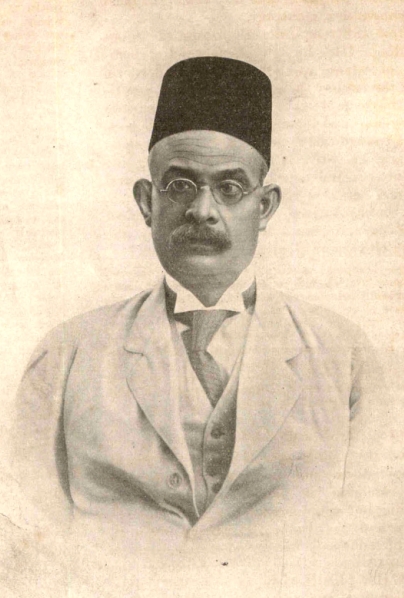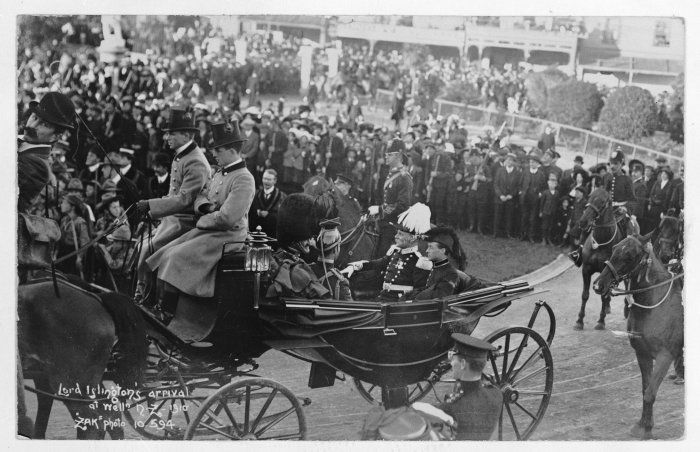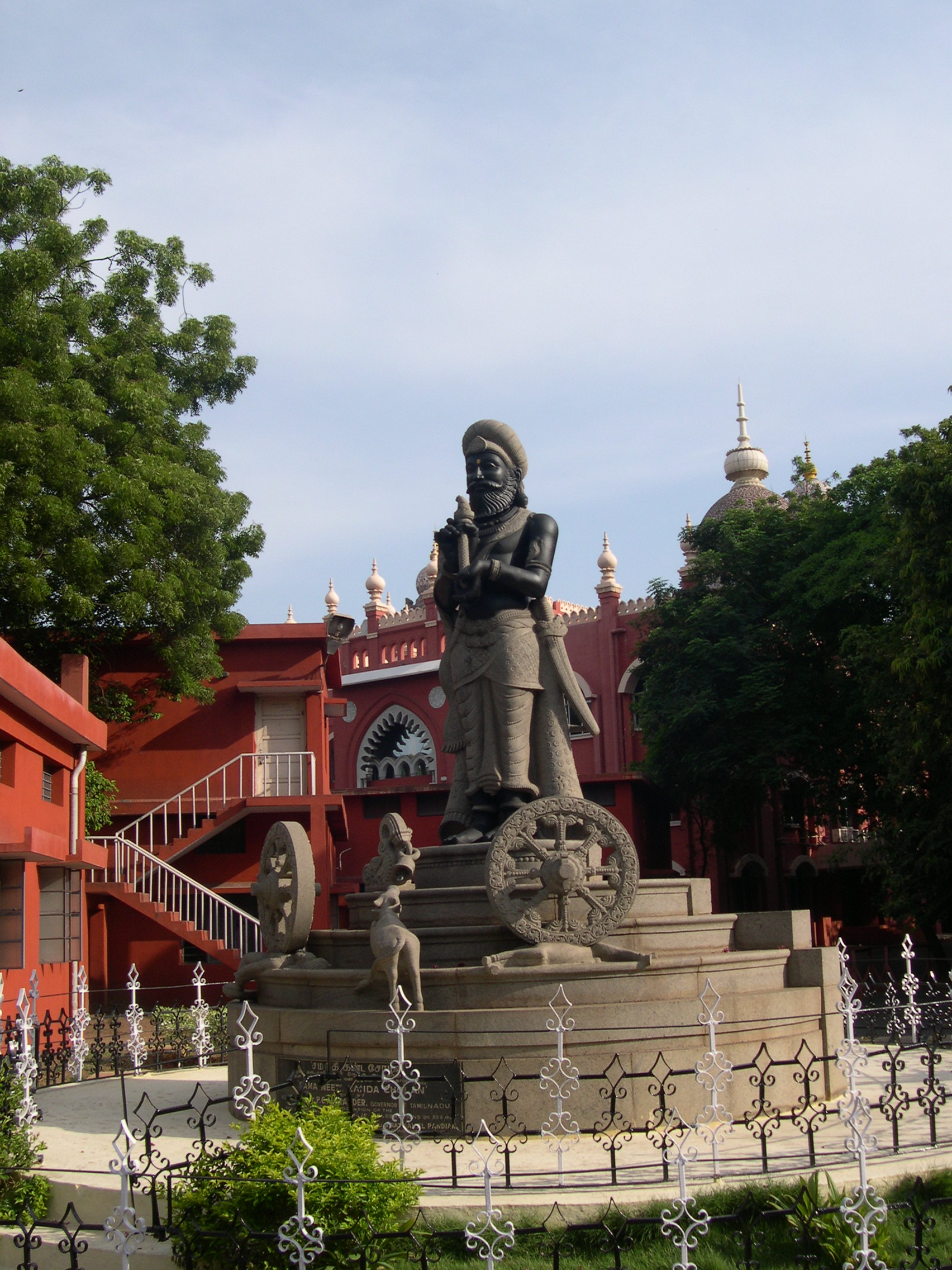|
Abdur Rahim (judge)
Sir Abdur Rahim, (7 September 1867 – 1952), sometimes spelled Abdul Rahim, was a judge and politician in British India, and a leading member of the Muslim League. He was President of the Nikhil Banga Praja Samiti from 1929 to 1934 and of the Central Legislative Assembly of India from 1935 to 1945. Life Rahim was born into a highly educated family of Bengal, the son of Mawlawi Abdur Rab, who was a zamindar in the province's Midnapore district. Educated at Presidency College, Calcutta, and in England at the Inns of Court, he became a barrister of the Calcutta High Court in 1890, and later became a founding and influential member of the Muslim League.S. M. Ikram, ''Indian Muslims and Partition of India'' (Atlantic Publishers & Distributors, 1992) p. 308-310 In the 1919 Birthday Honours, he was knighted. While he was still a judge of the High Court of Madras, Rahim gave a series of lectures at the University of Calcutta which were later published under the title ''The P ... [...More Info...] [...Related Items...] OR: [Wikipedia] [Google] [Baidu] |
Order Of The Star Of India
The Most Exalted Order of the Star of India is an order of chivalry founded by Queen Victoria in 1861. The Order includes members of three classes: # Knight Grand Commander ( GCSI) # Knight Commander ( KCSI) # Companion ( CSI) No appointments have been made since the 1948 New Year Honours, shortly after the Partition of India in 1947. With the death in 2009 of the last surviving knight, the Maharaja of Alwar, the order became dormant. The motto of the order was "Heaven's Light Our Guide". The Star of India emblem, the insignia of order and the informal emblem of British India, was also used as the basis of a series of flags to represent the Indian Empire. The order was the fifth most senior British order of chivalry, following the Order of the Garter, Order of the Thistle, Order of St Patrick and Order of the Bath. It is the senior order of chivalry associated with the British Raj; junior to it is the Most Eminent Order of the Indian Empire, and there is also, for women ... [...More Info...] [...Related Items...] OR: [Wikipedia] [Google] [Baidu] |
Inns Of Court
The Inns of Court in London are the professional associations for barristers in England and Wales. There are four Inns of Court – Gray's Inn, Lincoln's Inn, Inner Temple and Middle Temple. All barristers must belong to one of them. They have supervisory and disciplinary functions over their members. The Inns also provide libraries, dining facilities and professional accommodation. Each also has a church or chapel attached to it and is a self-contained precinct where barristers traditionally train and practise, although growth in the legal profession, together with a desire to practise from more modern accommodations and buildings with lower rents, caused many barristers' chambers to move outside the precincts of the Inns of Court in the late 20th century. History During the 12th and early 13th centuries, law was taught in the City of London, primarily by the clergy. But a papal bull in 1218 prohibited the clergy from practising in the secular courts (where the English common ... [...More Info...] [...Related Items...] OR: [Wikipedia] [Google] [Baidu] |
Maliki
The ( ar, مَالِكِي) school is one of the four major schools of Islamic jurisprudence within Sunni Islam. It was founded by Malik ibn Anas in the 8th century. The Maliki school of jurisprudence relies on the Quran and hadiths as primary sources. Unlike other Islamic fiqhs, Maliki fiqh also considers the consensus of the people of Medina to be a valid source of Islamic law. The Maliki school is one of the largest groups of Sunni Muslims, comparable to the Shafi`i madhhab in adherents, but smaller than the Hanafi madhhab. Sharia based on Maliki doctrine is predominantly found in North Africa (excluding northern and eastern Egypt), West Africa, Chad, Sudan, Kuwait, Bahrain, Qatar, the Emirate of Dubai ( UAE), and in northeastern parts of Saudi Arabia.Jurisprudence and Law – Islam Reorienting the Veil, University of ... [...More Info...] [...Related Items...] OR: [Wikipedia] [Google] [Baidu] |
Hanafi
The Hanafi school ( ar, حَنَفِية, translit=Ḥanafiyah; also called Hanafite in English), Hanafism, or the Hanafi fiqh, is the oldest and one of the four traditional major Sunni schools ( maddhab) of Islamic Law (Fiqh). It is named after the 8th century Kufan scholar, Abu Hanifa, a Tabi‘i of Persian origin whose legal views were preserved primarily by his two most important disciples, Imam Abu Yusuf and Muhammad al-Shaybani. It is considered one of the most widely accepted maddhab amongst Sunni Muslim community and is called the ''Madhhab of Jurists'' (maddhab ahl al-ray). The importance of this maddhab lies in the fact that it is not just a collection of rulings or sayings of Imam Abu Hanifa alone, but rather the rulings and sayings of the council of judges he established belong to it. It had a great excellence and advantage over the establishment of Sunni Islamic legal science. No one before Abu Hanifa preceded in such works. He was the first to solve the c ... [...More Info...] [...Related Items...] OR: [Wikipedia] [Google] [Baidu] |
Knight Bachelor
The title of Knight Bachelor is the basic rank granted to a man who has been knighted by the monarch but not inducted as a member of one of the organised orders of chivalry; it is a part of the British honours system. Knights Bachelor are the most ancient sort of British knight (the rank existed during the 13th-century reign of King Henry III), but Knights Bachelor rank below knights of chivalric orders. A man who is knighted is formally addressed as " Sir irst Name urname or "Sir irst Name and his wife as "Lady urname. Criteria Knighthood is usually conferred for public service; amongst its recipients are all male judges of His Majesty's High Court of Justice in England. It is possible to be a Knight Bachelor and a junior member of an order of chivalry without being a knight of that order; this situation has become rather common, especially among those recognized for achievements in entertainment. For instance, Sir Michael Gambon, Sir Derek Jacobi, Sir Anthony Hopkins ... [...More Info...] [...Related Items...] OR: [Wikipedia] [Google] [Baidu] |
1919 Birthday Honours
The 1919 Birthday Honours were appointments by King George V to various orders and honours to reward and highlight good works by citizens of the British Empire. The appointments were made to celebrate the official birthday of The King, and were published in ''The London Gazette'' from 3 June to 12 August. The vast majority of the awards were related to the recently ended War, and were divided by military campaigns. A supplementary list of honours, retroactive to the King's birthday, was released in December 1919. The massive list contained nearly 10,000 names, more than half of which were appointments to the Order of the British Empire. "The lists of awards to the Army are so long that only a part of the first section can be published to-day," reported ''The Times'' on 3 June. "This section fills 131 pages of the ''London Gazette''." Admiral of the Fleet Sir David Beatty and Field Marshal Sir Douglas Haig were both appointed to the Order of Merit. As ''The Times'' noted, "The s ... [...More Info...] [...Related Items...] OR: [Wikipedia] [Google] [Baidu] |
Sir Abdur Rahim
''Sir'' is a formal honorific address in English for men, derived from Sire in the High Middle Ages. Both are derived from the old French "Sieur" (Lord), brought to England by the French-speaking Normans, and which now exist in French only as part of "Monsieur", with the equivalent "My Lord" in English. Traditionally, as governed by law and custom, Sir is used for men titled as knights, often as members of orders of chivalry, as well as later applied to baronets and other offices. As the female equivalent for knighthood is damehood, the female equivalent term is typically Dame. The wife of a knight or baronet tends to be addressed as Lady, although a few exceptions and interchanges of these uses exist. Additionally, since the late modern period, Sir has been used as a respectful way to address a man of superior social status or military rank. Equivalent terms of address for women are Madam (shortened to Ma'am), in addition to social honorifics such as Mrs, Ms or Miss. Et ... [...More Info...] [...Related Items...] OR: [Wikipedia] [Google] [Baidu] |
Royal Commission On The Public Services In India
The Royal Commission on Public Services in India, also known as the Islington Commission was carried out under the Chairmanship of Lord Islington. It made the following recommendations in its report submitted in 1917:1. Recruitment to the superior posts should be made partly in England and partly in India. However, it did not favour holding competitive exams simultaneously in England and India, which was the prime demand of the Indian Nationalists.2. 25% of the superior posts should be filled by Indians partly by direct recruitment and partly by promotion.3. The services under the Government of India should be categorised into Class I and Class II.4. The principle of maintenance of efficiency should be adopted while fixing the salaries of civil servants.5. There should be a probationary period of 2 years for direct recruits. For the ICS ICS may refer to: Computing * Image Cytometry Standard, a digital multidimensional image file format used in life sciences microscopy * Indu ... [...More Info...] [...Related Items...] OR: [Wikipedia] [Google] [Baidu] |
Lawrence Dundas, 2nd Marquess Of Zetland
Lawrence John Lumley Dundas, 2nd Marquess of Zetland, (11 June 1876 – 6 February 1961), styled Lord Dundas until 1892 and Earl of Ronaldshay between 1892 and 1929, was a British Conservative politician. An expert on India, he served as Secretary of State for India in the late 1930s. Background and education Zetland, born in London, was the son of Lawrence Dundas, 1st Marquess of Zetland, and Lady Lillian, daughter of Richard Lumley, 9th Earl of Scarbrough. He was educated at Harrow School and Trinity College, Cambridge. At Cambridge, he was a member of the University Pitt Club. Political career In 1900, Zetland became aide-de-camp to Lord Curzon, Viceroy of India. While working for Curzon in the British Raj, Zetland travelled widely through Asia, having experiences which would later inform his fictional and non-fictional writing. Zetland was returned to Parliament for Hornsey in 1907, a seat he held until 1916. Much of his public career centred on British India. In Septe ... [...More Info...] [...Related Items...] OR: [Wikipedia] [Google] [Baidu] |
John Dickson-Poynder, 1st Baron Islington
John Poynder Dickson-Poynder, 1st Baron Islington, (31 October 1866 – 6 December 1936), born John Poynder Dickson and known as Sir John Poynder Dickson-Poynder from 1884 to 1910, was a British politician. He was Governor of New Zealand between 1910 and 1912. Early life The son of Rear Admiral John Bourmaster Dickson and Sarah Matilda Dickson (née Poynder), he was born on the Isle of Wight and educated at Twyford School, Harrow and Christ Church, Oxford. In 1884 he succeeded his uncle as sixth baronet, and on succeeding to his maternal uncle's property he assumed by royal licence the additional surname of Poynder in 1888. The Poynder estates in Wiltshire included Hilmarton near Calne, and Hartham near Corsham, where Dickson-Poynder carried out alterations c. 1888. He married Anne Beauclerk Dundas (c.1869-1958) the daughter of James Dundas of Dundas and granddaughter of Baron Napier of Magdala. They had one daughter, Joan, who was later Joan, Lady Altrincham who or ... [...More Info...] [...Related Items...] OR: [Wikipedia] [Google] [Baidu] |
Madras High Court
The Madras High Court is a High Court in India. It has appellate jurisdiction over the state of Tamil Nadu and the union territory of Puducherry. It is located in Chennai, and is the third oldest high court of India after the Calcutta High Court in Kolkata and Bombay High Court in Mumbai. The Madras High Court is one of three high courts of colonial India established in the three Presidency Towns of Madras, Bombay and Calcutta by letters patent granted by Queen Victoria, dated 26 June 1862. It exercises original jurisdiction over the city of Chennai, as well as extraordinary original jurisdiction, civil and criminal, under the letters patent and special original jurisdiction for the issue of writs under the Constitution of India. Covering 107 acres, the court complex is one of the largest in the world, second only to the Supreme Court of the United Kingdom. The High Court consists of 74 judges and a chief justice. History From 1817 to 1862, the Supreme Court of Madras was ... [...More Info...] [...Related Items...] OR: [Wikipedia] [Google] [Baidu] |








